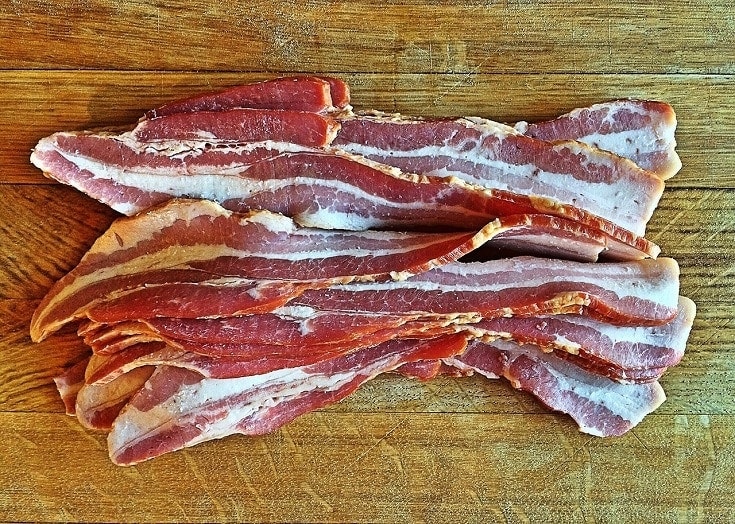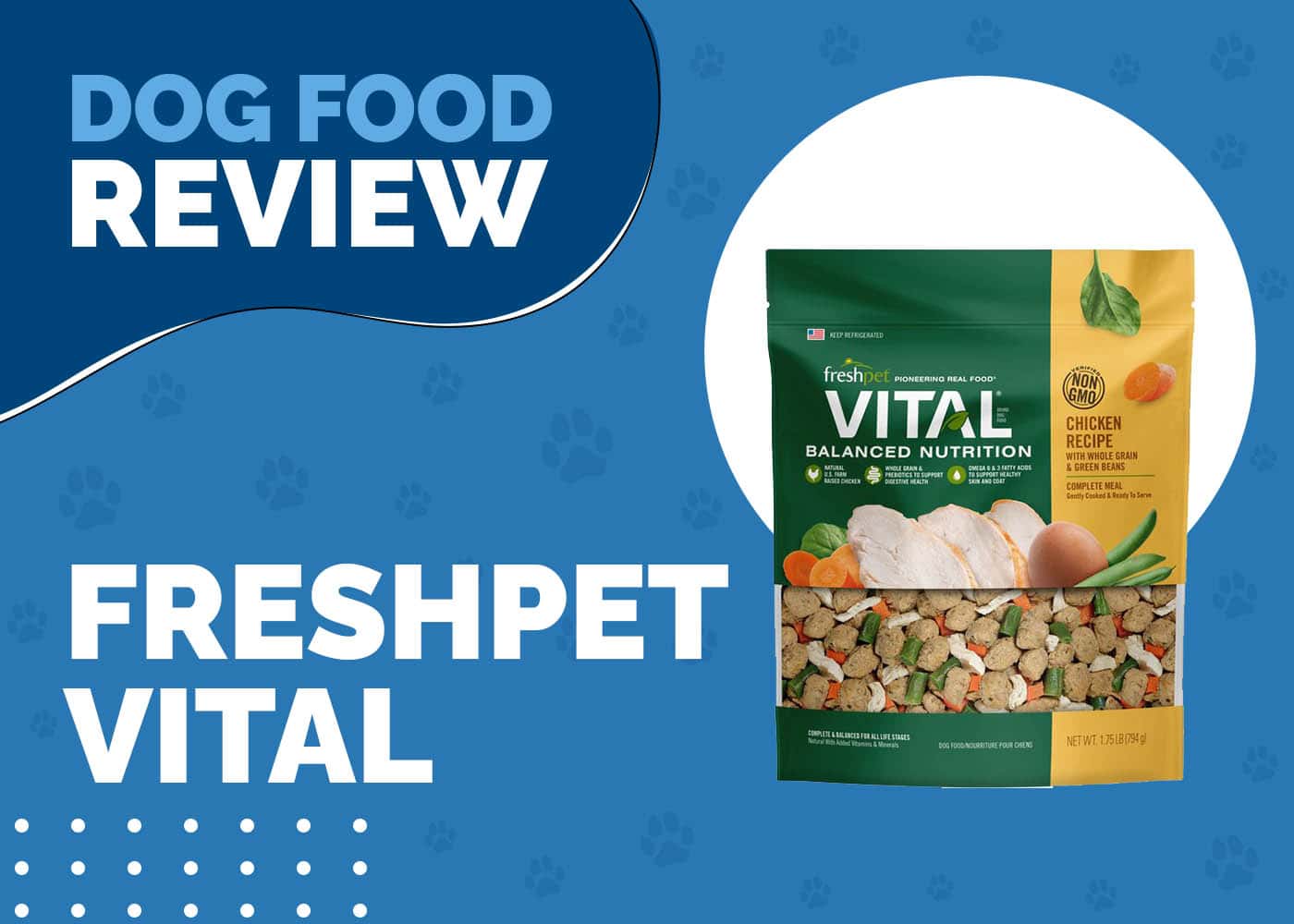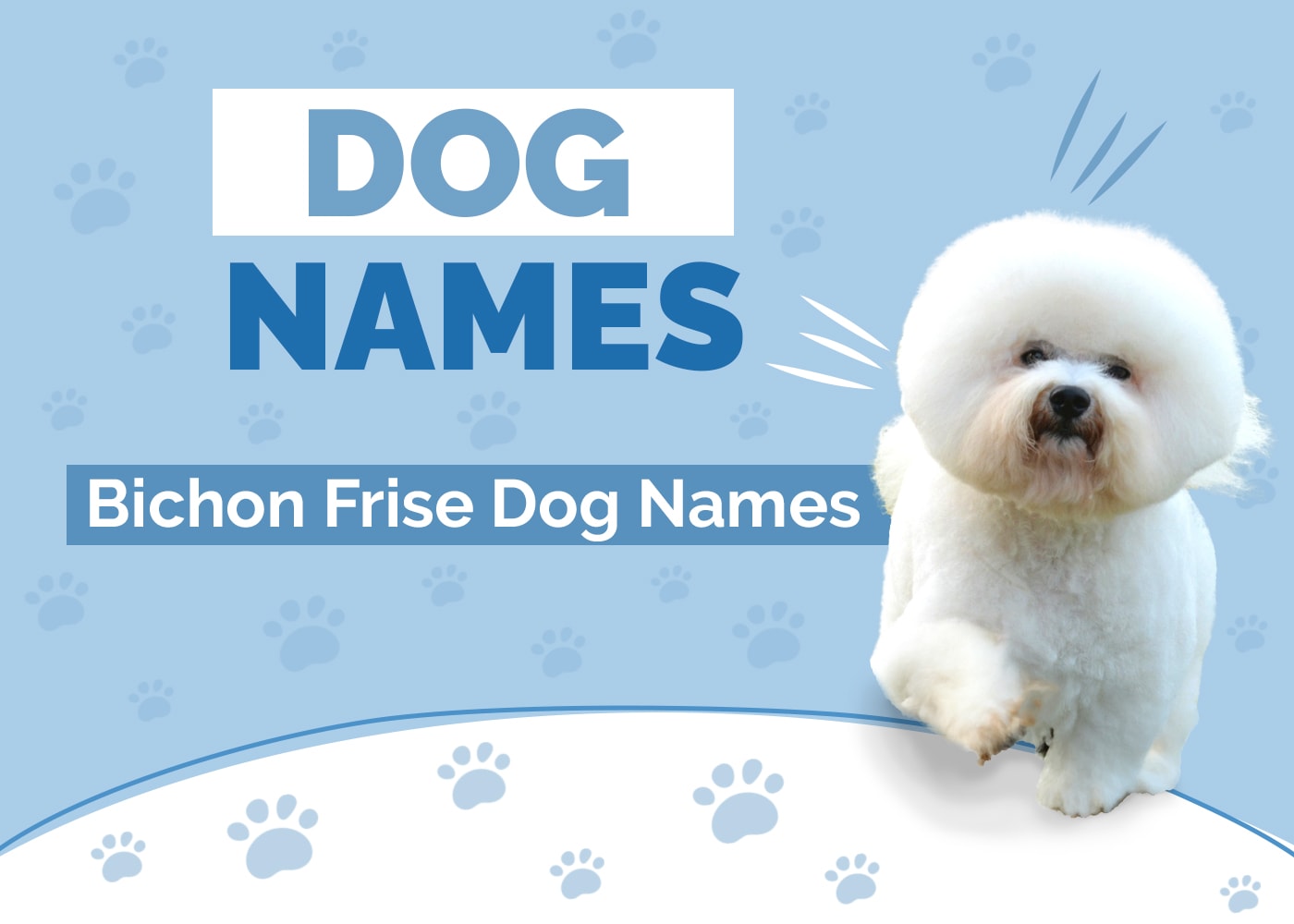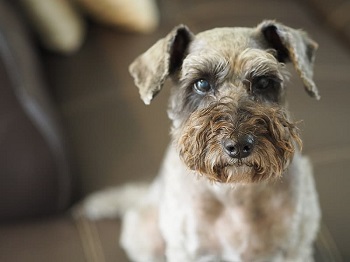Can Dogs Eat Bacon? Nutrition Facts & Safety Guide

Updated on

Bacon is a favorite food for most humans and a staple of mouthwatering breakfasts. Quality meat is an essential part of your pooch’s diet, and lean meats and organ meats contain essential amino acids, vitamins, and fats that are important for the health of your dog. But what about bacon? Your dog is bound to love bacon just as much as you do, but is bacon safe for dogs?
The short answer is yes, bacon in small amounts is fine for your pooch. But the real question is whether you should give your canine friend bacon. In this article, we’ll take a look at the potential health issues and whether giving your dog bacon is a good idea overall.
What exactly is bacon?
Bacon is a salt-cured cut of pork usually made from pork belly or the less-fatty back cuts. Most bacon is from side cuts — which is very fatty — but back or loin bacon is also fairly popular and less fatty, with a more ham-like texture and taste.
Bacon is made by curing the cuts of meat in salt, seasonings, and sometimes sugar and then lightly smoking them. The smoking happens at low heat, low enough that the bacon doesn’t cook but enough to add the distinctive flavor. Commercial bacon may also have various preservatives and large amounts of salt and is typically around one-third fat.

Health risks of eating bacon
Your pooch will love the irresistible smell of cooking bacon just as much as you do, and it’s easy to be tempted to give them a taste. It’s meat after all, right? Healthy, lean meat is an important part of your dog’s diet, but bacon is full of fat and grease, both of which are not good for your dog and in large amounts, can cause digestive issues. Here are the potential risks associated with feeding your dog bacon.
- The main concern with feeding your dog bacon is pancreatitis. This disease is caused by the inflammation of the pancreas and can occur when your dog eats too many fatty foods. The pancreas is responsible for releasing digestive enzymes to help your pooch digest food. When these enzymes are functioning normally, they will only activate in the small intestine, but with pancreatitis, they activate straight away, causing severe damage to the pancreas and surrounding organs. This is more common in small breeds, but large breeds can also be affected by high-fat diets. Symptoms of this disease include nausea, vomiting, lethargy, and diarrhea. Pancreatitis is usually easily treatable but is wholly preventable, and avoiding too many fatty foods like bacon is essential.
- Bacon is preserved in high amounts of sodium, which can cause health issues for your dog, namely bloat. Too much salt can cause excessive thirst in your dog, and they will drink large amounts of water to satiate themselves. This leads to a build-up of excess fluid and gas, which in extreme cases, can cause gastric torsion, an often fatal condition.
- Flavorings and preservatives. Besides salt, bacon is often packed with other flavorings and preservatives. Garlic and onion powder, pepper, and sugar are just a few common flavorings used on bacon, none of which are good for your pooch.
- Some cured meats are considered carcinogenic by the World Health Organization because they contain nitrates added during the smoking and curing process. These nitrates have potential links to cancer, heart, and liver disease in both humans and dogs.
What about raw pork and bacon?
Raw food diets have become a popular yet controversial diet among dog owners in the last few years, and the diet often includes raw meat. However, raw meat has potential dangers, especially pork. Bacterial contamination is a real risk with raw pork, namely salmonella and E. coli bacteria and parasites such as trichinella spiralis. Trichinosis is caused by this roundworm parasite and can cause a multitude of harmful symptoms, including inflammation, diarrhea, and vomiting.

Are there any benefits?
There are no nutrients in bacon that your dog cannot get from healthier alternatives. The protein and fat in bacon are easily found in other healthier meat products, as well as in most good-quality commercial foods.
Final Thoughts
While your dog will love the smell and taste of bacon, and small amounts occasionally are probably fine, we recommend avoiding giving your pooch any bacon at all. The high fat and sodium content are just too much for most dog’s digestive systems to handle, and if bacon is given regularly, it can cause serious health complications for your pooch.
It is difficult to resist those pleading eyes while you are cooking up a bacon breakfast, but there is a multitude of healthier alternatives to give your pooch.
Related Read:
Featured Image Credit: Wokandapix, Pixabay











